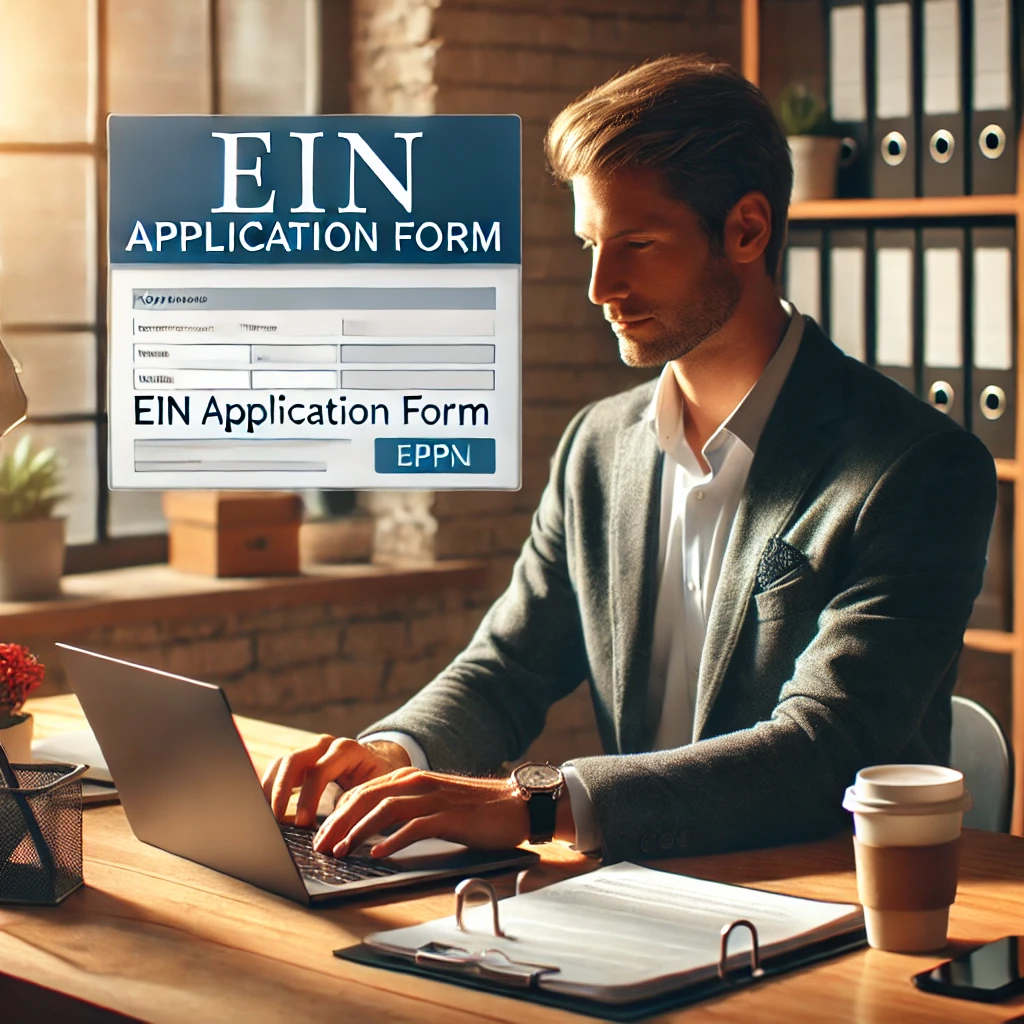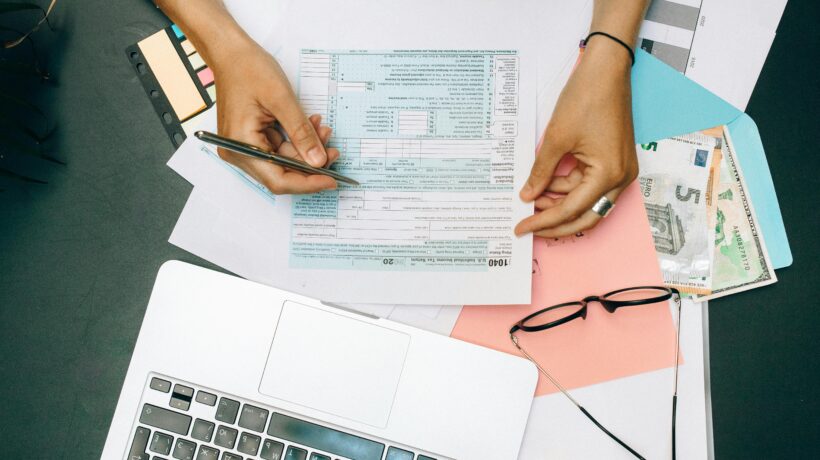Why Every Small Business Needs an EIN—and How to Get Yours Today
Imagine if you suddenly lost access to your Social Security Number (SSN)—a small piece of information you rarely think about until you need it. For your business, an Employer Identification Number (EIN) serves a similar role. Whether you’re launching a startup, a side hustle, or planning to hire your first employee, an EIN is one of the most important identifiers you’ll need.
An EIN, also known as a Federal Tax Identification Number, is a unique nine-digit number that allows the IRS to monitor your business activity. It’s essential for everything from filing taxes to hiring employees, opening a business bank account, and establishing credit. Let’s explore why an EIN is so important and how you can get one quickly by following IRS guidelines.

Why Every Small Business Needs an EIN
Here’s what an EIN allows you to do:
- File Your Business Taxes: You’ll need an EIN to file federal and most state taxes, regardless of your business structure. This number helps the IRS track tax responsibilities, and if you’re running payroll, it’s essential for withholding and reporting income taxes for employees.
- Hire Employees: Hiring even one employee requires an EIN. The EIN lets the IRS monitor your payroll activity and track employee tax contributions, including Social Security and Medicare.
- Open a Business Bank Account: Most banks require an EIN before opening a business account. This not only helps you separate business finances from personal ones but is also critical for establishing credit and building financial credibility.
- Apply for Business Licenses and Permits: In many industries, especially those that require state or federal regulation, an EIN is needed to secure permits or licenses.
- Build Business Credit: Just as individuals have credit scores linked to their SSNs, businesses have credit linked to their EINs. Building a good business credit score makes it easier to secure loans, attract investors, and manage finances as your company grows.
How to Apply for an EIN: Step-by-Step Guide
The application process for an EIN is free and relatively simple if you follow the IRS guidelines closely. Here’s how to apply:
Step 1: Determine Eligibility
- Principal Business Located in the U.S. The IRS requires your primary business operations to be in the United States or U.S. territories.
- Authorized Individual: Only a business owner or responsible party who has their own valid SSN, ITIN, or EIN can apply. The authorized individual must be the person controlling or managing the business’s assets and funds.
Step 2: Choose the Right Time
The EIN application process is fast online, but you can apply by fax or mail if needed. Note that processing time varies:
- Online: Immediate issuance upon application completion.
- Fax: Four business days.
- Mail: Approximately four weeks.
If you’re starting a business soon, apply for an EIN early to ensure you have it when you need it for bank accounts, licenses, or hiring.
Step 3: Gather Required Information
You’ll need to provide:
- Business Name: The legal name of your business as registered with your state, along with any DBA (“doing business as”) names if applicable.
- Business Address: Use your business’s primary physical location. Virtual Office addresses are accepted if they are used as your business address.
- Type of Business Structure: Indicate if your business is a sole proprietorship, partnership, corporation, LLC, or another entity type. This selection affects your tax obligations, so be precise.
Step 4: Complete the Online Application
- Visit the IRS Website: Head to the IRS’s EIN Assistant page on IRS.gov, available Monday to Friday from 7 a.m. to 10 p.m. Eastern Time.
- Select Your Entity Type: The IRS will guide you through a series of questions tailored to your business structure.
- Provide Ownership Information: Enter your personal information, including your SSN or ITIN, as the responsible party.
- Review and Submit: Double-check all entries, as mistakes can delay processing. Submit your application, and you’ll receive your EIN confirmation letter immediately if applying online.
Step 5: Save Your EIN Confirmation Letter
After completing the application, save your EIN confirmation letter for your records. This document is proof of your EIN and is required for bank accounts, licenses, and tax filings. Consider making copies or saving digital versions in secure storage.
How Long Does It Take to Get an EIN?
The online process provides an EIN immediately after submission, which is ideal for business owners who need to start quickly. For applications sent via fax or mail, expect longer processing times. Planning ahead will help you avoid delays, especially during tax season or other peak times for business filings.
Common Questions About EINs
Do I need an EIN if I don’t have employees?
Yes. Even without employees, an EIN is recommended for tax filings, opening a bank account, building credit, and more.
Can I use my SSN instead of an EIN?
While some sole proprietors may use their SSN, an EIN is safer and provides more privacy. It’s often required for state tax filings, permits, and separating personal and business finances.
What if I change my business structure?
Changing your business structure (e.g., from sole proprietorship to LLC) requires a new EIN. The IRS offers guidance on how to apply when your structure changes.
Get Your EIN Today
Don’t wait until the last minute to get your EIN. It’s a crucial step in setting up your business, building credit, and handling your taxes. With just a few basic details, you can have your EIN ready and focus on what matters most—growing your business. Follow the IRS guidelines and set your business up for success by applying for an EIN today!
If you’ve received a notice from the IRS stating that you owe penalties for late tax filing, late payment, or missed employment tax deposits, don’t rush to pay. You may not have to pay these IRS penalties. Learn how here.




